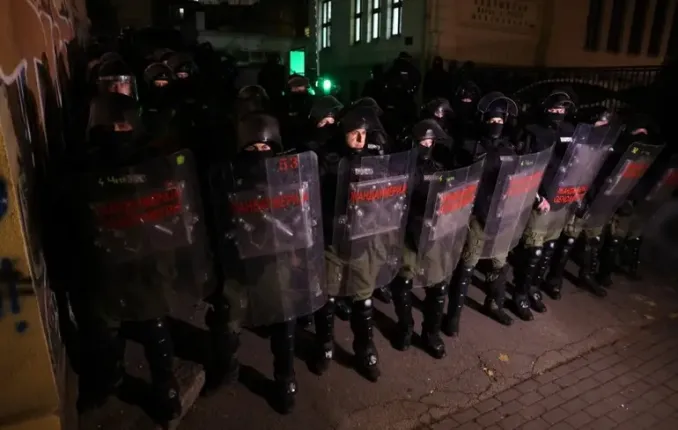Protests in Serbia: Over 80 Arrested as Tensions Escalate in Belgrade Streets

Mass protests in Serbia have been ongoing for several months, intensifying recently amid widespread public dissatisfaction with the country's leadership and governance. On Tuesday, June 29, tens of thousands gathered in the center of Belgrade to voice their demands to the authorities, primarily calling for early elections and political changes. These demonstrations quickly escalated into clashes with law enforcement agencies, which used special equipment such as stun grenades and pepper spray to disperse the crowds. According to the Serbian police, more than 80 people were detained, and nearly 50 officers along with over 20 civilians suffered injuries during the confrontations. Interior Minister Ivica Dacic condemned the violence, emphasizing that law enforcement will take all necessary measures to restore public order and prevent further acts of aggression. In the early hours of Wednesday, an additional 77 protesters were taken into custody; 38 remain in detention awaiting charges, both administrative and criminal. The rally in the Serbian capital began peacefully but turned into violence when protesters confronted police barricades in the city center. The protests were spurred by unresolved issues stemming from last year's tragedy at the Novi Sad railway station, where a roof collapse led to the deaths of 16 people, igniting nationwide outrage. The movement includes not only ordinary citizens but also students and opposition parties united by their demands to combat corruption, improve infrastructure transparency, and hold authorities accountable. President Vucic, in power for over 12 years, refused to meet protesters’ demands for early elections, asserting that national polls would not take place before the end of 2026. He also accused unspecified foreign states of attempting to destabilize Serbia, claiming that such efforts are financed and organized by foreign intelligence agencies. Authorities are now investigating the organizers of the protests and incidents, deploying additional police and special forces to maintain order. Public discontent has been steadily growing in recent years, especially following the tragic event at Novi Sad, which resulted in 14 deaths and raised questions about government accountability for infrastructure safety. Law enforcement has already detained several experts and officials involved in the repair works, but protesters demand not only punishment for those responsible but also full transparency in governmental actions. The situation continues to develop, highlighting the deep-rooted frustrations within Serbian society and the urgent need for systemic reforms to restore trust and stability.

